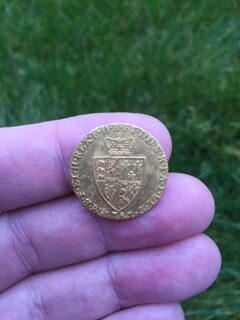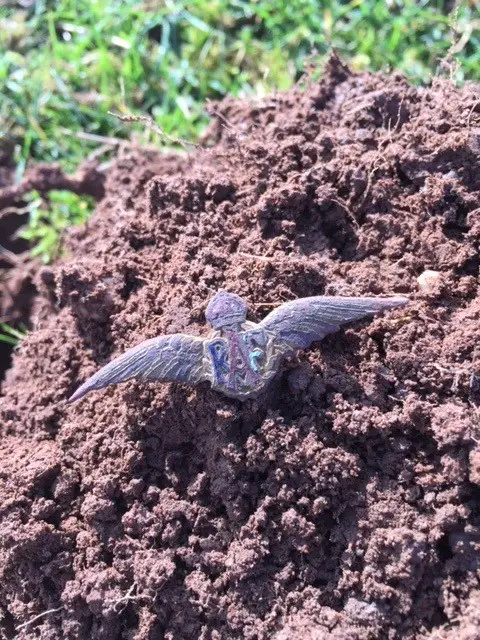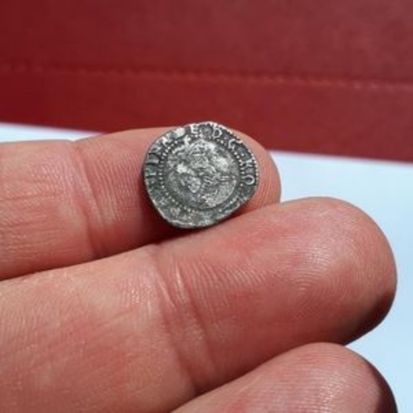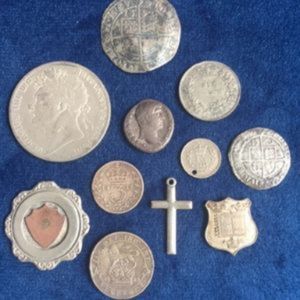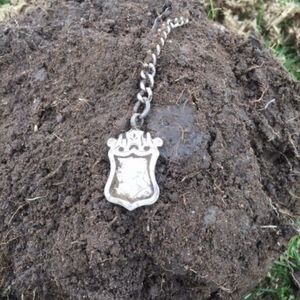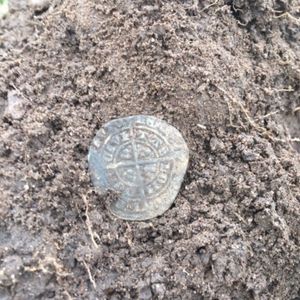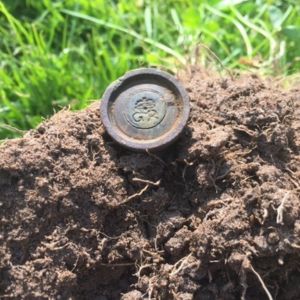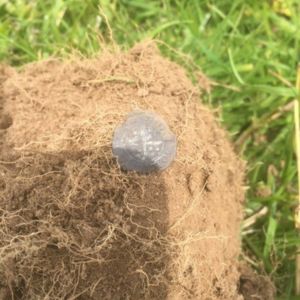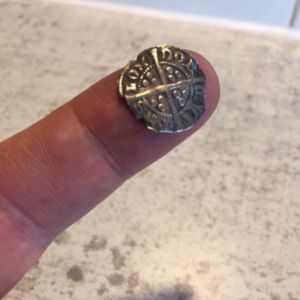Magnet fishing UK
Magnet fishing is an exciting hobby that has become increasingly popular in recent years. It involves using strong neodymium magnets attached to ropes to hunt for metallic objects in waterways.
The magnets latch onto metal objects under the water, allowing you to retrieve them. All that’s needed to get started is a strong magnet, a rope, and access to a waterway.
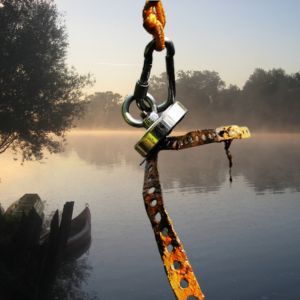
The magnets used in magnet fishing are usually neodymium rare-earth magnets which are the strongest type of permanent magnets in the world.
The strong magnetic pull allows you to feel when your magnet connects with something interesting under the water.
You can then retrieve the object by pulling up the rope attached to the magnet. You never know what you’ll find magnet fishing.
People have recovered all sorts of objects including guns, knives, tools, bicycles, historical artifacts, purses and wallets. Read my short article discussing if magnet fishing is worth it.
Magnet fishing can be seen as the cousin of metal detecting on land. It’s an inexpensive hobby that can unearth some real treasures while enjoying the great outdoors.
Just make sure you adhere to proper safety precautions when magnet fishing. It can be a fun and rewarding way to explore waterways in your area.
Is magnet fishing legal UK?
Magnet fishing laws UK
In the UK, magnet fishing in rivers, canals and streams is generally allowed without any licenses or permits needed, as long as you’re not trespassing on private property.
On private property, you would always need to seek permission from the landowner. However, there are some important rules to keep in mind.
Any historical artefacts found in inland waterways automatically become property of the Crown and finds need to be reported to your local Finds Liaison Officer (FLO).
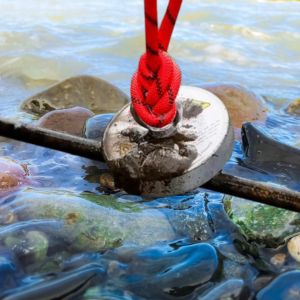
If you are lucky enough to find what you think is treasure, this will fall under The Treasure Act and need declaring.
Certain areas, like commercial docks or ports, may prohibit magnet fishing.
It’s critical to avoid any restricted military sites or protected wrecks.
You should also adhere to local byelaws and regulations, like not obstructing waterways or leaving behind litter.
In the rarest of cases, any weapons, explosives or controlled substances found must be immediately handed to police.
Overall, magnet fishing hobbyists in the UK should follow common sense and basic courtesy in inland waterways, while abiding by laws regarding anything deemed historically significant.
The best places to go magnet fishing in the UK
Bridges provide excellent magnet fishing locations across the UK’s waterways. Underneath bridges you can find trapped metal objects tossed or dropped by pedestrians over many years.
Historic bridges especially can produce interesting relics and artifacts. Good spots are areas around bridge foundations, the shoreline beneath bridges and on bridge supports or arches stretching across rivers and canals.

Busy road and railway bridges see plenty of unintentional metal deposits, so are prime magnet fishing locations.
Narrow footbridges also allow you to drop your magnet down between any cracks safely.
When magnet fishing from bridges, be sure to follow all safety precautions.
Find bridges with good bank access, watch for passing boats and use caution when retrieving finds from steep or slippery banks.
With a huge variety of bridges crisscrossing the UK, you’re sure to make exciting discoveries in the mud and silt underneath.
What can you find magnet fishing?
Magnet fishing finds
One of the appeals of magnet fishing, just like metal detecting is that you never know what your magnet will dredge up. Common finds in the UK include old coins still inside metal purses or wallets, relics, tools, bicycles, knives and other metal debris.
More unique discoveries can include antique firearms, daggers or swords, silverware, safes, historic artifacts like Roman coins inside metal boxes and even discarded jewelery or precious metals inside bags.
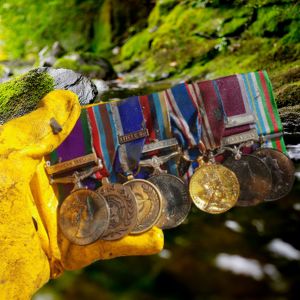
As long as there is something ferrous in the item containing these finds, the magnet will latch onto it.
Industrial areas may produce old machine parts, piping, railroad equipment and building materials.
Near docks and harbours, you can find anchors, chains, propellers and driftwood with nails.
Lost mobile phones, cameras, watches and modern trash are also frequent magnet fishing finds.
While mostly mundane scraps are fished up in the UK, there’s always a chance of unearthing a valuable antique or an interesting bit of local history while magnet fishing adding to the thrill of this unusual hobby.
Magnet Fishing Kit
Magnet fishing equipment
Getting started with magnet fishing requires only a few key pieces of equipment. The most important is having strong neodymium magnets which are essential for latching onto objects below the water’s surface.
Magnets are attached to ropes or cords which should be durable and thick enough to support the weight of your finds. Many people in the hobby connect multiple magnets in a row to cover more surface area.
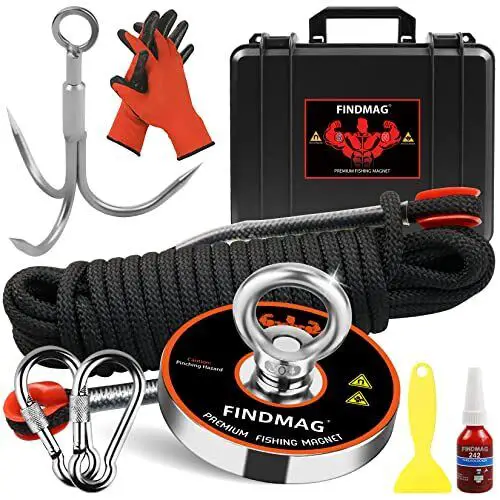
You’ll also need gear for retrieving items like gloves to protect your hands and a grappling hook to reach objects further away.
Waders or Wellington boots are recommended for getting into waterways safely.
Some other useful equipment includes waterproof bags or buckets to store finds, first aid kits, a knife for cutting lines and string to tie off dangerous items.
Optional kit could include life vests or floating boards depending on your magnet fishing environment. With quality magnets, ropes, and basic safety gear, you’ll be equipped for successful magnet fishing trips.
Safety Tips for Magnet Fishing
Magnet fishing can be a fun hobby but as with most hobbies, there are essential safety precautions to take. Firstly, be aware of your surroundings and what lies below the water’s surface before throwing your magnet.
It’s important to abide by all magnet fishing regulations and avoid restricted areas and private property. Be cautious of steep, slippery banks and waterways with strong currents that could sweep you away.
Wearing a life jacket is recommended, even when wading. Use thick gloves when pulling up your rope and retrieving objects to avoid injuring or cutting your hands on debris.
Any weapons, explosives or hazardous materials should be left untouched and immediately reported to authorities. Keep a first aid kit on hand in case of an emergency.
Make sure someone knows your location when magnet fishing alone. Research water conditions and be careful not to get tangled in vegetation.
Following basic precautions will allow you to magnet fish safely and avoid potential dangers.
Magnet fishing – Final thoughts
Magnet fishing, very much like metal detecting is the kind of hobby that offers outdoor adventure, hidden treasures and new perspectives on local history.
While laws and best practices should be followed, it provides an accessible activity for all ages to enjoy across the UK’s abundant waterways.
One major appeal is the thrill of discovering something unknown each time your magnet connects with an object below the surface. From common pieces of metal to rare artifacts, you never know what you’ll dredge up.
It gets you outdoors exploring new locations in search of promising fishing spots near docks, bridges, canals, and rivers. Not only is it exciting, but it can foster a greater appreciation of the history beneath our feet.
Magnet fishing also benefits the environment by removing metallic debris from waterways and shorelines. Practicing “Leave No Trace” principles and properly disposing of rubbish keeps sites clean for other visitors.
Participants can gain a sense of contributing to their local community through preservation efforts.
Overall, magnet fishing allows hobbyists to satisfy their sense of adventure while unplugging from technology to connect with the outdoors.
Combining recreation, education and conservation, magnet fishing offers a worthwhile pursuit as long as it’s practiced legally, safely and with care for our shared resources.
With a bit of patience and luck, you never know what hidden gems await beneath the water’s surface. Why not also delve deeper into my website and explore how to start metal detecting!



